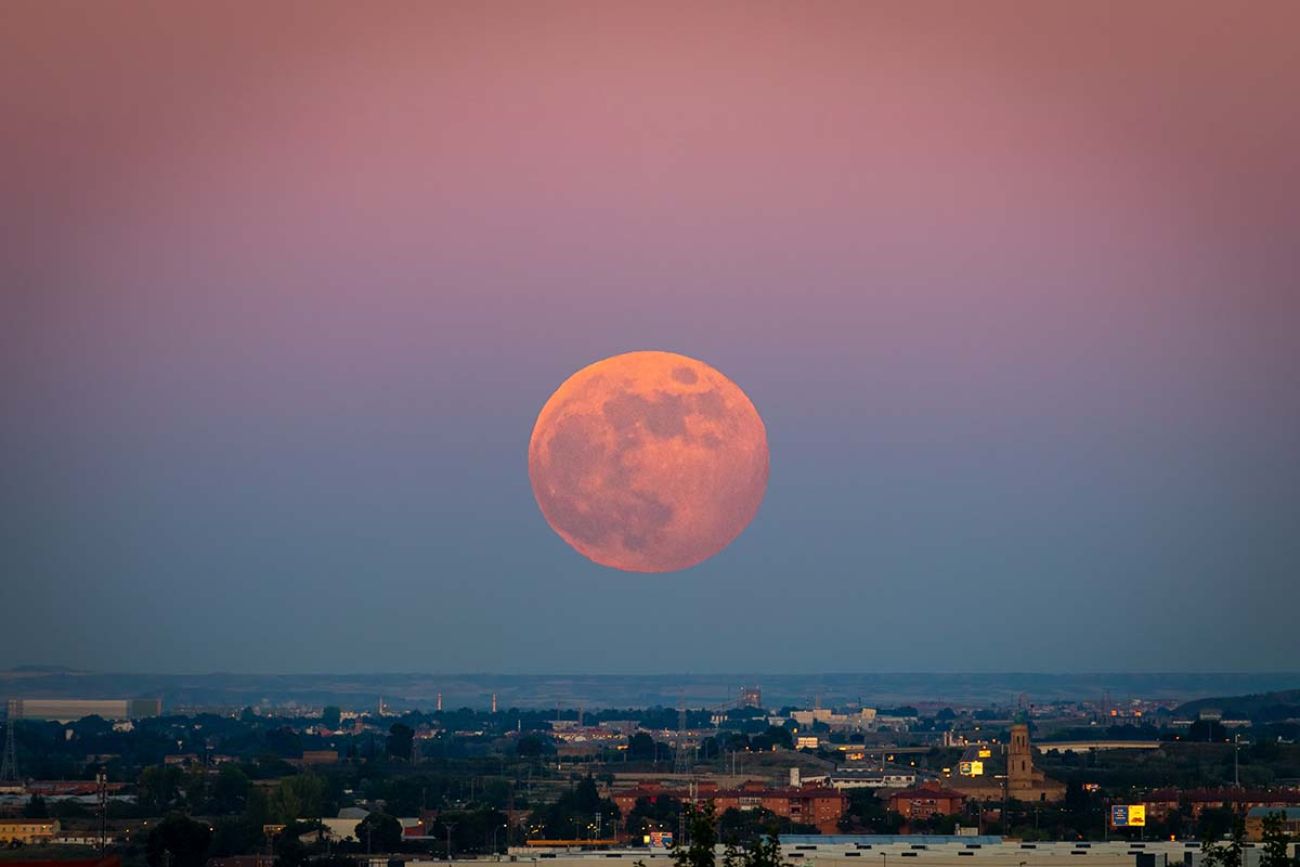Heads up, stargazers: A partial lunar eclipse supermoon is coming Sept. 17

- A supermoon, which appears bigger and brighter than a typical full moon, will be visible on Sept. 17
- At the same time, the full moon will also experience a partial lunar eclipse
- The supermoon will appear bigger, brighter and red because of the partial lunar eclipse
Get ready, Michigan stargazers: A supermoon is coming Sept. 17 and it could be overshadowed by another astronomical event, a partial lunar eclipse.
Full moons are likely every month, but supermoons, which occur when the moon is closest to Earth, are rarer. Only 25% of all full moons are supermoons, according to NASA. The next ones are Oct. 17 and Nov. 15.
But the September supermoon will be brighter and red because of the partial lunar eclipse, which is when the Earth passes between the sun and the moon, and casts its shadow on the moon.
“Supermoon is a popular science term for when full moons occur close to the perigee of the moon's orbit about Earth,” said Seth Jacobson, natural science professor at Michigan State University.
“Lunar eclipses occur at full moons when the sun, Earth and moon are all in the same plane and in that order. In this case, the moon will simultaneously be closer and in almost the exact same plane, so we get a partial lunar eclipse and a supermoon at the same time.”
“The chance of both occurring during the same full moon cycle is about 5% or once every one-and-a-half years,” Jacobson said.
Related: Michiganders get ready for the ‘biggest, brightest’ moon so far this summer
The supermoon should be visible throughout North America, but for the best glimpse, seek out places without a lot of light, experts say.
The partial eclipse is predicted at 10:44 p.m.
What to expect
Typically during a lunar eclipse, the Earth’s shadow will completely cover the moon.
Some of the sunlight passing through Earth’s atmosphere will dimly light up the moon, causing it to appear a red or orange color.
But since this is a partial lunar eclipse, only the upper part of the moon will be covered by Earth’s shadow and will appear very dark.
However, the portion of the moon that is not covered will still appear a reddish-brown color, according to Space.com.
“The moon appears bigger just because it’s closer to the Earth at this moment in time,” said Ted Bergin, astronomy professor at the University of Michigan.
“It appears red because of the effect of the Earth’s atmosphere on sunlight. The moon is always as it is, it’s just an apparent thing that happens during this eclipse.”
See what new members are saying about why they donated to Bridge Michigan:
- “In order for this information to be accurate and unbiased it must be underwritten by its readers, not by special interests.” - Larry S.
- “Not many other media sources report on the topics Bridge does.” - Susan B.
- “Your journalism is outstanding and rare these days.” - Mark S.
If you want to ensure the future of nonpartisan, nonprofit Michigan journalism, please become a member today. You, too, will be asked why you donated and maybe we'll feature your quote next time!




